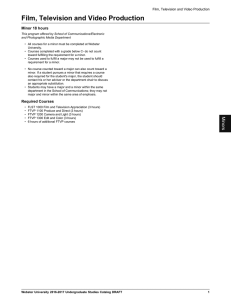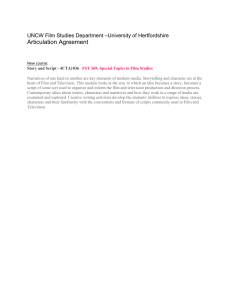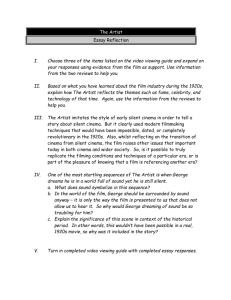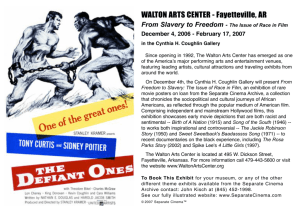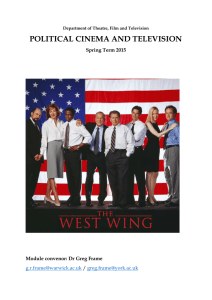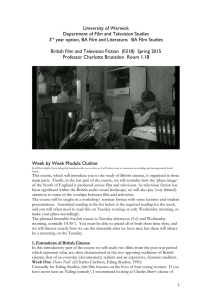Conference Report: ‘From the National ... Television in Transition’, Saturday May 7 2005.
advertisement
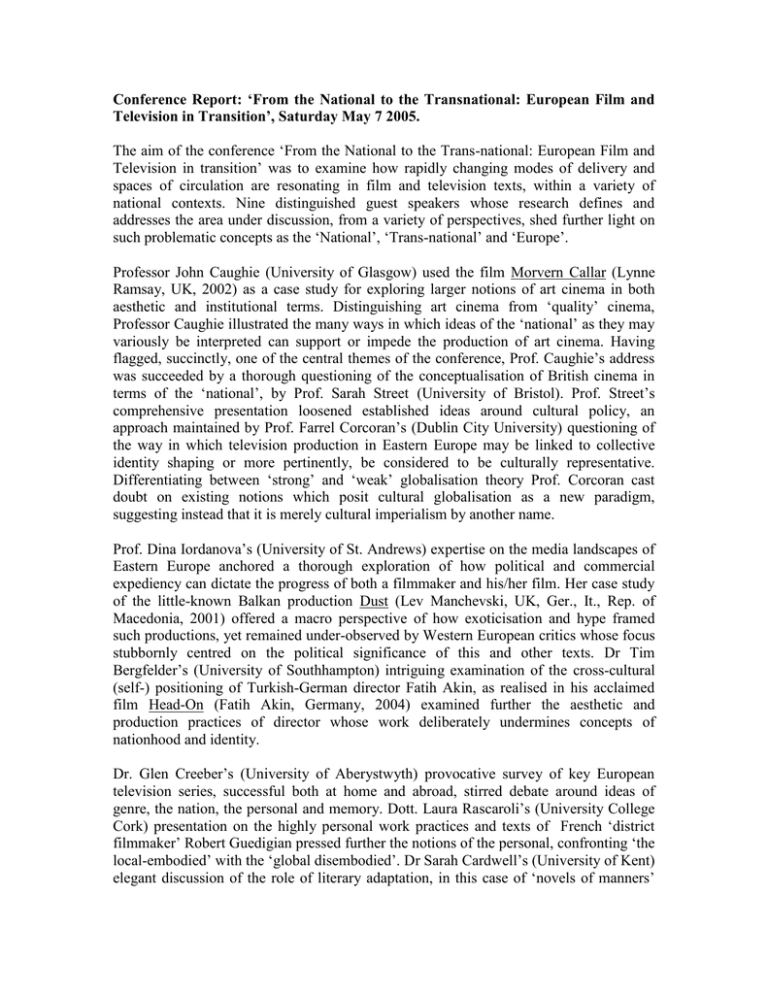
Conference Report: ‘From the National to the Transnational: European Film and Television in Transition’, Saturday May 7 2005. The aim of the conference ‘From the National to the Trans-national: European Film and Television in transition’ was to examine how rapidly changing modes of delivery and spaces of circulation are resonating in film and television texts, within a variety of national contexts. Nine distinguished guest speakers whose research defines and addresses the area under discussion, from a variety of perspectives, shed further light on such problematic concepts as the ‘National’, ‘Trans-national’ and ‘Europe’. Professor John Caughie (University of Glasgow) used the film Morvern Callar (Lynne Ramsay, UK, 2002) as a case study for exploring larger notions of art cinema in both aesthetic and institutional terms. Distinguishing art cinema from ‘quality’ cinema, Professor Caughie illustrated the many ways in which ideas of the ‘national’ as they may variously be interpreted can support or impede the production of art cinema. Having flagged, succinctly, one of the central themes of the conference, Prof. Caughie’s address was succeeded by a thorough questioning of the conceptualisation of British cinema in terms of the ‘national’, by Prof. Sarah Street (University of Bristol). Prof. Street’s comprehensive presentation loosened established ideas around cultural policy, an approach maintained by Prof. Farrel Corcoran’s (Dublin City University) questioning of the way in which television production in Eastern Europe may be linked to collective identity shaping or more pertinently, be considered to be culturally representative. Differentiating between ‘strong’ and ‘weak’ globalisation theory Prof. Corcoran cast doubt on existing notions which posit cultural globalisation as a new paradigm, suggesting instead that it is merely cultural imperialism by another name. Prof. Dina Iordanova’s (University of St. Andrews) expertise on the media landscapes of Eastern Europe anchored a thorough exploration of how political and commercial expediency can dictate the progress of both a filmmaker and his/her film. Her case study of the little-known Balkan production Dust (Lev Manchevski, UK, Ger., It., Rep. of Macedonia, 2001) offered a macro perspective of how exoticisation and hype framed such productions, yet remained under-observed by Western European critics whose focus stubbornly centred on the political significance of this and other texts. Dr Tim Bergfelder’s (University of Southhampton) intriguing examination of the cross-cultural (self-) positioning of Turkish-German director Fatih Akin, as realised in his acclaimed film Head-On (Fatih Akin, Germany, 2004) examined further the aesthetic and production practices of director whose work deliberately undermines concepts of nationhood and identity. Dr. Glen Creeber’s (University of Aberystwyth) provocative survey of key European television series, successful both at home and abroad, stirred debate around ideas of genre, the nation, the personal and memory. Dott. Laura Rascaroli’s (University College Cork) presentation on the highly personal work practices and texts of French ‘district filmmaker’ Robert Guedigian pressed further the notions of the personal, confronting ‘the local-embodied’ with the ‘global disembodied’. Dr Sarah Cardwell’s (University of Kent) elegant discussion of the role of literary adaptation, in this case of ‘novels of manners’ and Dr Graham Allen’s (University College Cork) survey of various Hammer versions of Frankenstein, reminded us of Prof. Caughie’s introductory injunction to bear in mind how cinema may as, according to Attridge the literary does, ‘occupy the place of the Other.’ Lively discussion throughout the day’s panel session suggested that a negotiated understanding of the terms of the conference theme, is part of a more widely significant adjustment in thought imperative to an interpretation of a significant media-cultural development. I. Kleinecke and A.M.Mullally, June 2005.
